Woman becomes a solo parent after spending inheritance from her dad on a sperm donor
A woman has shared her joy at becoming a solo parent after spending some of the inheritance money from her dad on a sperm donor.
Jayme Browning, 35, a housing officer from Tavistock, Devon, decided to use £7k of the money left to her by her father, Russell Browning, on her fertility journey after he died in January 2020, aged 66.
Having used some of the money to buy a house, she used another chunk to help realise her dreams of becoming a parent.
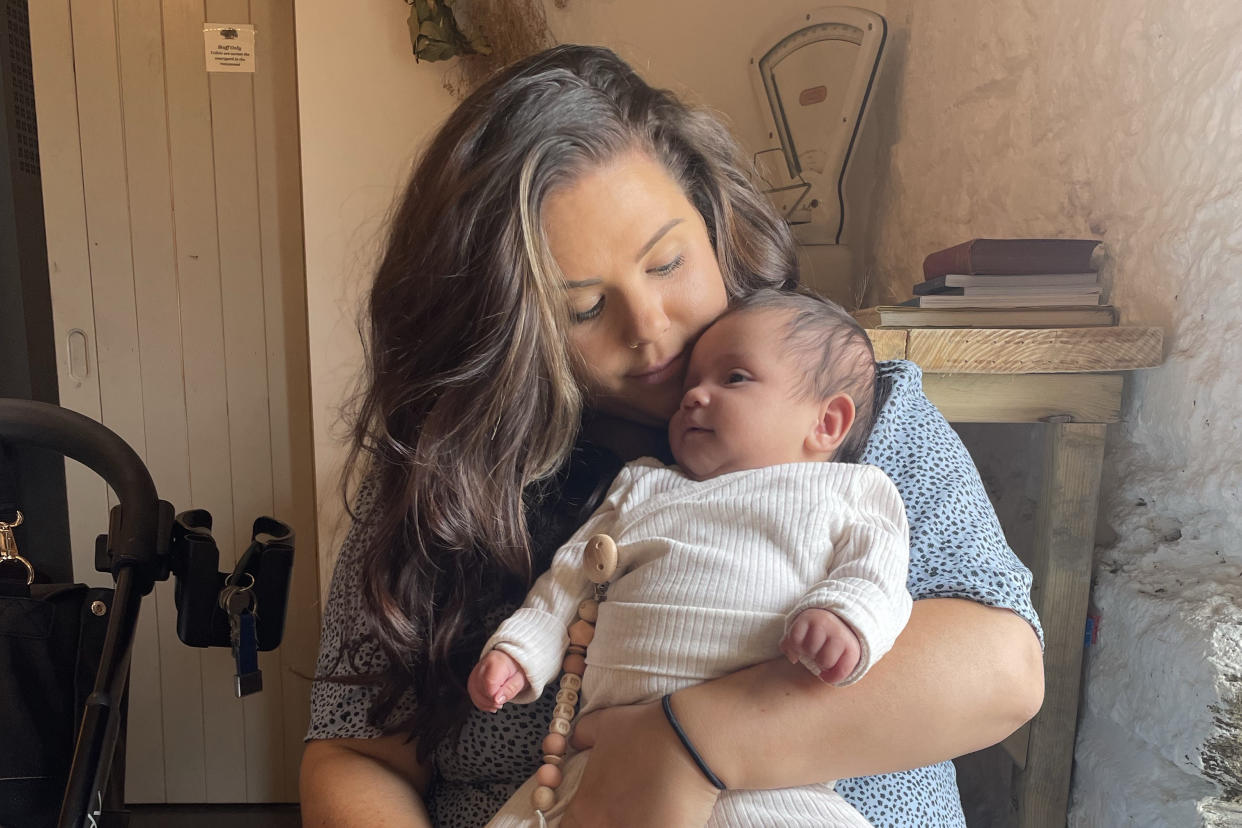
Around a year after her dad's death, Browning underwent various fertility tests and decided to embark on her path to motherhood using a sperm donor.
The money covered three vials of sperm, medication, and appointments from the Centre for Reproduction & Gynaecology Wales (CRGW) fertility clinic, Plymouth.
After undergoing IUI (Intrauterine Insemination) – artificial insemination – Browning was thrilled to fall pregnant on her third try, in December 2021, with her daughter, Edie, arriving by C-section in July last year.

"Losing my dad was the moment I really took becoming a mum seriously," Browning explains.
"Life is short and I’m so sad he never got meet his granddaughter.
"I’m very lucky I had the inheritance money, and I wanted to put it towards something sensible for my future.
"I joked with friends that if I hit 35 and was still single, I’d get a turkey baster and do it myself.
"But I hit 34 and thought the time was right.
"I knew I wanted a child, and I was able to afford the treatment – so I went for it."
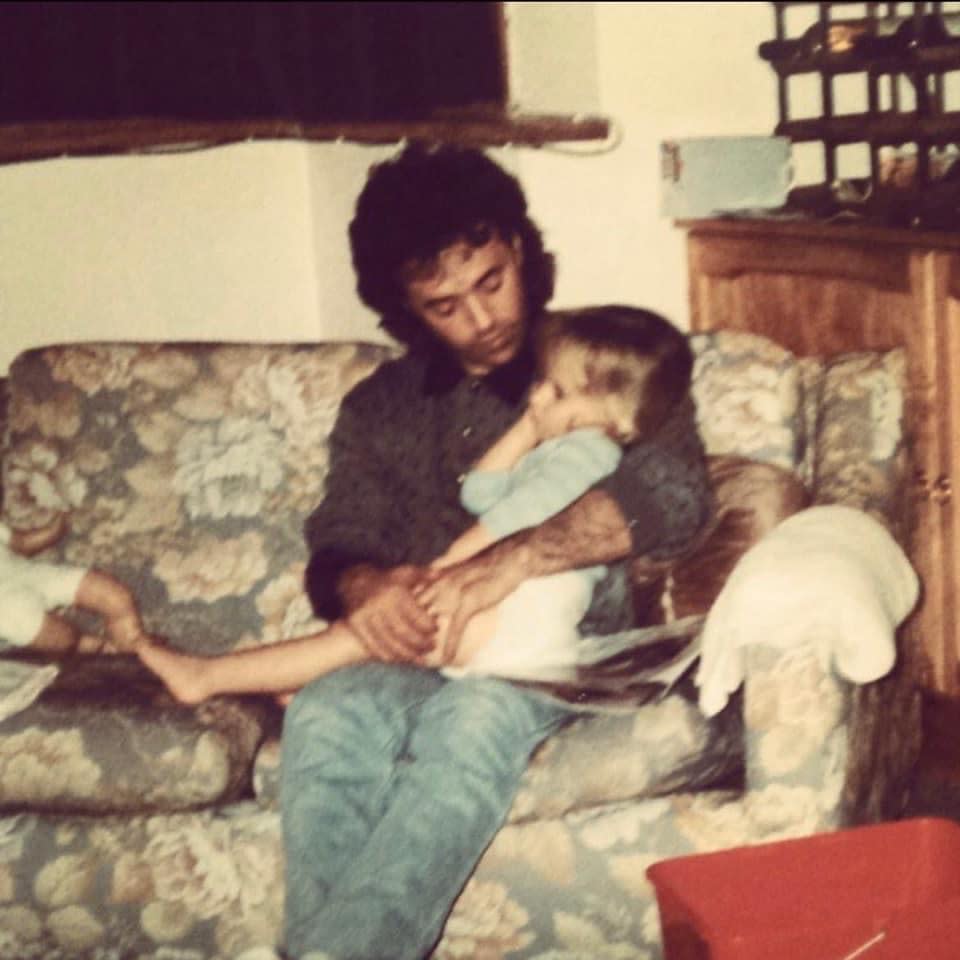
Browning’s dad Russell initially went into hospital in December 2019 with breathing difficulties, but died from suspected pulmonary lung disease a month later.
Both Browning and her brother, Ryan, 38 were left an inheritance by their dad.
With her share, Browning, put a deposit down on a house before spending a further portion of it on fertility treatment.
Initially Browning says some of her friends and family, including her mum, were a little "shocked" at her decision to become a solo parent, but everyone was supportive.
"I felt a bit nervous to tell people - no one really knew I wanted a baby," she explains.
"But I never had any negativity - my friends and family were all on board."
After undergoing fertility tests in August 2020, Browning opted to have IUI, which involved inserting sperm directly into the womb.
She chose a donor and received three vials of sperm at a cost of just under £7K.
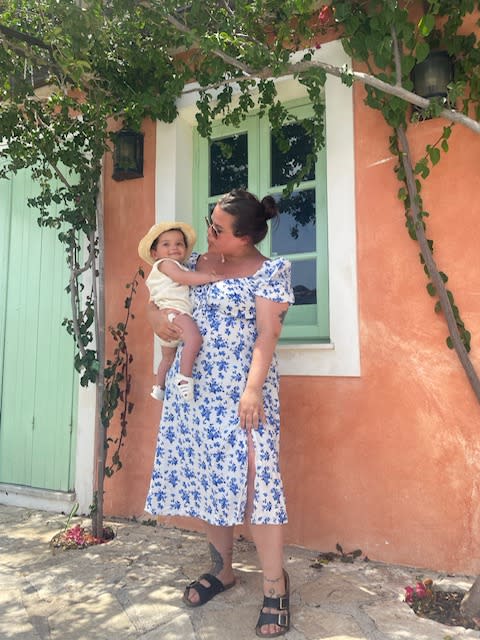
The first two rounds of IUI in December 2021 and February 2021, both sadly failed, following which Browning took nine month break from trying, before undergoing her last round in November 2021.
"I put a lot of pressure on myself the first two times, and I don't think the stress helped," she explains.
"I think by the third time I was more relax and in a good place."
Having taken a pregnancy test, Browning was disappointed when it came back negative, but when her period was late, she took another test and saw a faint positive light.
"I was in disbelief," she says. "I later found out I was two weeks pregnant and was so happy."
Despite her joy at conceiving, Browning had a difficult pregnancy and struggled with severe nausea and migraines due to gestational diabetes.
Due to her health issues she was booked-in for an elective C-section at 37 weeks.
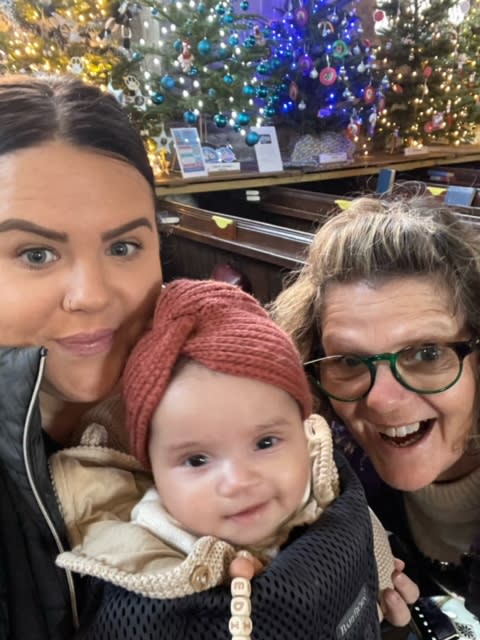
Browning welcomed her little girl Edie on 19 July 2022 at Derriford Hospital, Plymouth, on 19 July 2022, weighing 6lb 13oz.
"It was surreal holding her in my arms for the first time," she says.
"I still lived alone so it was very daunting to take her home by myself.
"But mum lives about 10 minutes away, so I've had to the most amazing support system around me."
When Edie was six months old, Browning, met her current partner, Tim, 32, a road line worker, who she says has "slotted" into their lives perfectly.
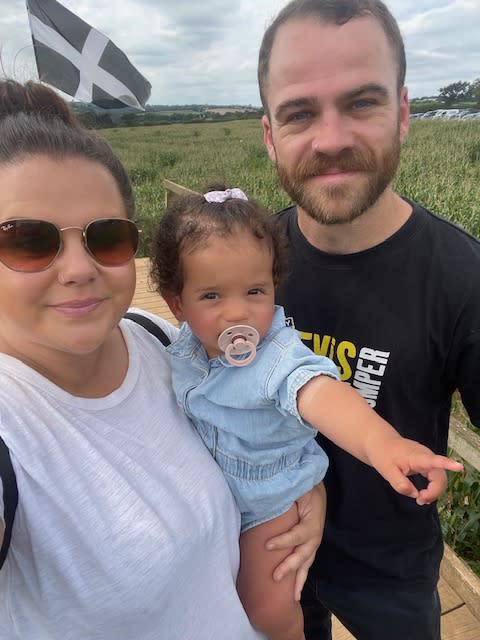
Edie recently celebrated her first birthday and Browning has really settled into motherhood.
"It's been a huge adjustment, but Edie is such a chilled out and happy child," she explains.
"All I know that it’s been hands down best decision I have ever made.
"It's not all been a walk in the park, but I couldn't imagine my life with Edie."
You can follow Browning's life at https://www.instagram.com/thickthighs_and_reallife/
Egg and sperm donation: the facts
The trends in Egg, Sperm and Embryo Donation report from the Human Fertilisation and Embryology Authority (HFEA), reveals a dramatic increase in children born through egg, sperm and embryo donation over time.
The report shows that the number of children born with the help of a donor has risen considerably since the 1990s with over 4,100 children born in 2019 compared to around 2,500 in 1993.
Egg, sperm and embryo donation accounts for one in 170 of all births and for one in 6 births using IVF in the UK.
The HFEA defines egg donation as a woman going through part of the IVF process in order to have some of her eggs collected, which she can then donate to someone else's treatment, fertility research or training.
Women usually need to be between the ages of 18 and 35 to donate their eggs, although clinics may only allow eggs from an older woman to be used in exceptional circumstances, such as if you’re donating to a family member.
Before donation a woman will need to undergo certain health tests to ensure they don't pass on any serious diseases or medical conditions to the baby or mother. Some clinics also set additional eligibility criteria, including minimum and maximum Body Mass Indexes (BMIs), but it is advised to talk the fertility clinic about their process.
It's illegal to pay for either egg or sperm donation in the UK, but egg donors can receive compensation of up to £750 per donation 'cycle' to cover their costs.
Sperm donors can receive up to £35 per clinic visit to cover their expenses.
However, egg and sperm donors can claim more if their expenses for things like travel, accommodation and childcare are higher than this.
Neither egg or sperm donors will have any legal rights or responsibilities to children born from their donation and won’t be required to pay anything towards their care.
However, children born from donations will be able access identifying details which can allow them to contact the donor in the future. If they do choose to make contact, it’s up to both the donor-conceived individual and the donor to decide if they want to have any kind of relationship.
If you are struggling with fertility, speak to your doctor about what options there are for you.
Additional reporting SWNS.
Fertility read more:
How does the IVF process work and who is eligible? (Yahoo Life UK, 6-min read)
Couple welcome baby after only retrieving one egg during IVF (Yahoo Life UK, 5-min read)
Couple raise £8k in four weeks to pay for IVF baby after 12 years of infertility(Yahoo Life UK, 3-min read)


